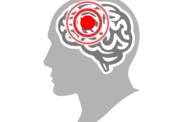Neurological disorders
Neurological disorders include
- Brain disorders
- Autonomic nervous system disorders
- Cerebrovascular disorders
- Injuries, infections and tumours of the nervous system
- The category you were looking for was not found. Please try another one.
- List is empty.

Tick-borne encephalitis
The tick is one of the carriers of infectious diseases. Tick-borne encephalitis is one of them. Over the past 10 years, the number of cases has ranged from 50 to 108 per year.

Tuberculous meningitis
Tuberculosis is an infectious disease. Even today it is a common cause of death, especially in the developing world. But it is also common in developed countries.

Diabetic neuropathy
Diabetic neuropathy is a disease of the nervous system. The nerves are affected. It is most often found together with diabetes, hence its name.

Epilepsy
This disease is manifested mainly by recurrent epileptic seizures, but it is also accompanied by many other syndromes that complete the global clinical picture of the patient, such as cognitive disorders, depression, anxiety and other psychiatric complications.

Guillain-Barré syndrome
Guillain-Barré Syndrome (GBS) is an acquired inflammatory demyelinating disease. It is a so-called polyradiculoneuropathy, i.e. the involvement of multiple peripheral nerves and nerve roots.

Horner's syndrome
Horner's syndrome is caused by damage to the nervous system and has typical manifestations. What causes it and how is it treated?

Polyneuropathy
Polyneuropathy mainly affects the nerves of the extremities. Why does nerve damage occur and how does it manifest itself?

Radiculopathy
Radiculopathy, radicular syndrome, or pinched nerve. These terms describe pain caused by nerve compression. It is reported that up to 90% of the population will have experienced back pain at least once in their lifetime.

Statoacoustic nerve neuron - Schwann
Acoustic neurinoma and schwannoma are synonyms for one and the same benign tumor.









